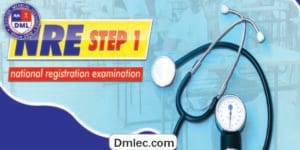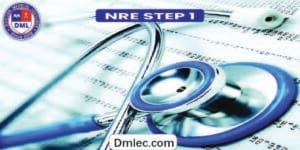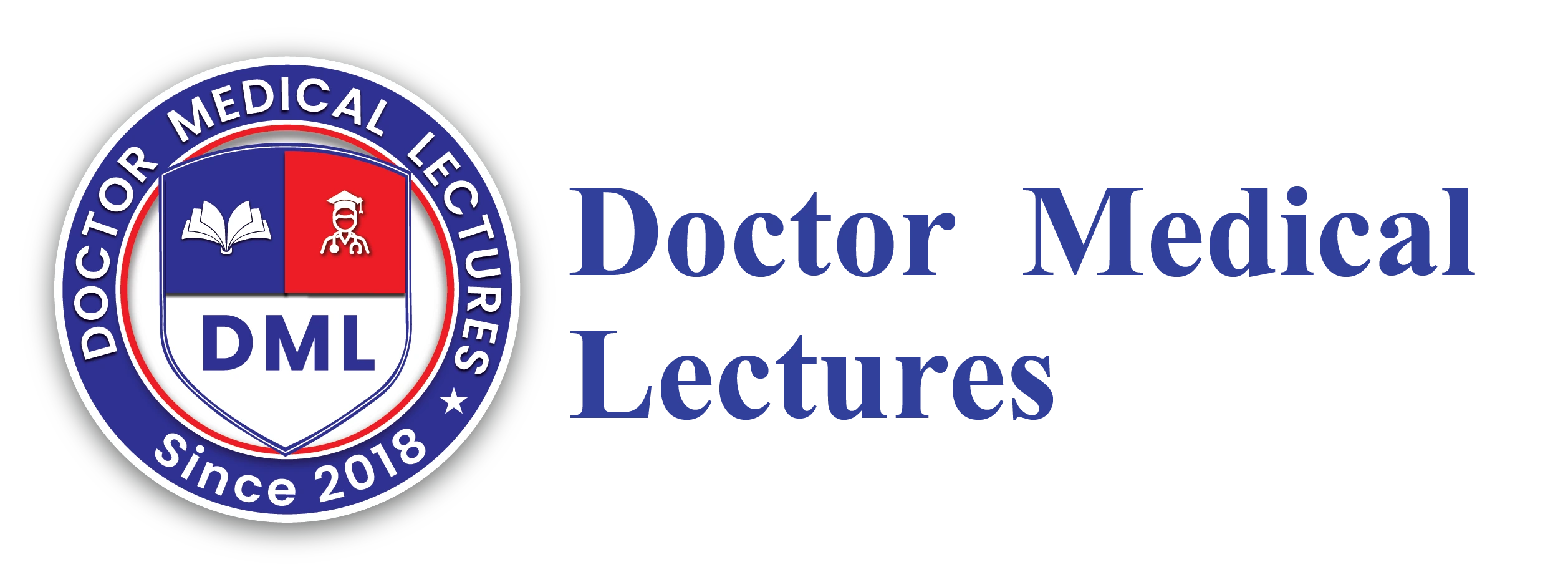Introduction
NRE Step 1 examinations assess theoretical and practical knowledge related to Medical-Surgical Nursing (MSN). Nursing graduates taking these examinations must show in depth understanding about adult diseases that impact them as well as treatment planning issues across a continuum. MSN tests require nursing graduates to make sound clinical decisions while prioritizing patient safety and wellbeing.

This comprehensive resource presents an in depth study of key medicalsurgical nursing components found on NRE Step 1. Such as cardiovascular, respiratory, nervous and renal systems; diabetes mellitus as well as postoperative complications are covered here. Candidates gain an idea of the types of questions presented during testing. As well as nursing knowledge and decision making skills required during examination providing candidates an optimal way to approach. NRE Step 1 more comfortably. No matter where preparation begins newcomer testing or revising key concepts this resource serves as the perfect way to build confidence while approaching NRE Step 1 more comfortably!
Key Systems in Medical-Surgical Nursing
Cardiovascular System
Our cardiovascular system plays a crucial role in transporting oxygen and nutrients throughout our bodies via our circulatory system; any disruption requires prompt nursing action to restore performance adults often develop complications in this regard.
Myocardial infarction (heart attack), high blood pressure (hypertension), congestive heart failure and irregular heartbeats (arrhythmias) are among the more widespread cardiovascular ailments. May have serious adverse impacts on cardiac output and tissue perfusion.
Nurses possess invaluable assessment abilities. This may involve monitoring vitals like pulse, blood pressure and respiration rate. As well as auscultating heart sounds for murmurs or gallops or ECG readings for arrhythmias or ischemic changes. Nurses should possess early warning sign recognition capabilities including chest pain, shortness of breathor diaphoresis (sweating).
Emergency nursing has numerous goals; from providing oxygen and prescribing medications such as nitrates and beta-blockers as needed to preparing patients for cardiac procedures like defibrillation; offering education regarding lifestyle modification or medication adherence as long-term solutions.
Respiratory System
Our respiratory systems play a central role in everyday life. If any illnesses inhibit oxygen delivery to or carbon dioxide removal from our lungs, creating distress or failing that puts additional pressure on these vital systems, even endangering their survival altogether.
Clinical practice exposes doctors and nurses to serious respiratory conditions like asthma – an ongoing, inflammatory disease with intermittent episodes of airway narrowing; chronic obstructive pulmonary disease (COPD), which restricts airflow; pneumonia infections that inflame lung tissue as well as pulmonary embolisms that obstruct lung arteries are all risks inherent to clinical settings.
Effective nursing care requires in depth respiratory evaluations by nurses. Nurses must monitor respiration rates, use pulse oximetry to track oxygen saturation levels, auscultate lung fields for crackling breath sounds or wheezing sounds that might signal danger, listen for early warning signals such as nasal flaring, accessory muscle use or cyanosis early, As well as monitor for crackling breath sounds that signal imminent danger and auculcate lung fields for any crackling noises that signal imminent peril. These assessments form part of effective nursing care provision
Interventions typically consist of administering oxygen using appropriate devices (nasal cannula and mask), using inhalers with nebulized bronchodilators, suctioning airways to clear secretions out, positioning patients upright for easier breathing. As well as instructing on strategies such as inhaler usage strategies or smoking cessation techniques that could bring long-term improvements for respiratory wellbeing. Nurses frequently educate their patients regarding such techniques that could bring lasting improvements for respiratory wellbeing.
Care of Nerve System Conditions
Our nervous systems play an integral part of everyday life; from motor control, sensory perception, cognitive processing speed reliance to neurologic conditions developing without medical diagnosis beforehand requiring speedy nursing evaluation to maximize successful outcomes.
Neurological emergencies often include stroke (from either an ischemic or hemorrhagic cause), seizures, meningitis (an infection of membranes lining the brain and spinal cord) or increased intracranial pressure that, left untreated.May lead to herniation of brain tissue.
Nurses employing neurological assessment tools such as the Glasgow Coma Scale (GCS) are adept at monitoring consciousness levels, pupil sizes, response times, motor strength coordination and sensory responses accurately. As well as any changes that indicate worsening conditions accurately in clients.
Nursing care during seizures must prioritize airway patency and injury control while positioning patients to quickly lower ICP levels as quickly as possible. Staff should immediately alert themselves of neurological deterioration or noncompliance with medication requirements. While patient education regarding potential signs of neurological decline remains essential.
Maintaining Homeostasis and Treating Disorders
The kidney system plays an integral part in filtering blood, clearing away waste products, and maintaining fluid-electrolyte balance; any disruption could have serious repercussions both within our own bodies and globally.
At times, dialysis patients can simultaneously suffer both acute kidney injury (AKI) with rapid function decline and chronic kidney disease (CKD) with gradual worsening – all concurrently. Furthermore, urinary tract infections must also be addressed concurrently by dialysis providers.

Nurses closely oversee both fluid intake and output. Nurses monitor for signs of excess water like edema or hypertension. As well as dehydration symptoms or potassium sodium imbalances that require medical intervention immediately.
Interpretation of laboratory data such as creatinine levels, BUN levels and electrolyte concentration is vital in providing timely interventions and patient education. Nurses will counsel patients regarding diet restrictions, medication adherence and protecting dialysis access sites.
Clinical Conditions
Diabetes Mellitus Care Plan
Diabetes Mellitus (type one or two insulin deficiency/resistance), affects millions worldwide and requires careful, long-term management to fully manifest. Otherwise permanent damage could ensue with serious implications for healthcare systems worldwide.
Nursing duties often consist of regularly monitoring blood glucose with glucometers and administering accurate insulin injections with knowledge about types and timing of injections; being aware of hypo and hyperglycemia symptoms. As well as complications such as diabetic ketoacidosis (DKA), which requires medical intervention immediately; amongst many other responsibilities.
An effective education on foot care, diet and exercise habits and medication adherence is vital in order to prevent long-term complications like neuropathy, retinopathy or nephropathy from appearing prematurely.
Postoperative Complications
Patients recovering after surgery can be at risk of post-op complications that, left undetected for too long, could result in morbidity or mortality; early identification and intervention are therefore key methods to lowering morbidity rates after an operation has taken place.
Common complications during surgery may include infections at the surgical site, excessive bleeding and hemorrhaging, respiratory depression due to anesthesia effects and deep vein thrombosis (DVT) that could result in pulmonary embolism.
Nurses take great care in monitoring vital signs, providing effective pain management techniques and encouraging early. Nurses quickly recognize sudden changes such as hypotension, tachycardia or respiratory distress and intervene promptly often providing immediate solutions through prompt action.
Teaching patients how to care for wounds properly, identify infectious indicators and use medications responsibly can dramatically speed healing processes and shorten recovery timelines.
Preparation Strategy for NRE Step 1
Concept Based Study
Rather than memorizing disease mechanisms and clinical manifestations, opt for conceptual learning approaches like mapping symptoms to pathologies; this will make exam prep more manageable while giving ample clinical reasoning and application opportunities in exam scenarios.
Visual memory aids such as flowcharts and diagrams have proven extremely successful at aiding retention and recall during exams.
NRE Step 1 Exam Focuses on Real World Scenarios
The National Residency Examination Step 1 exam places particular emphasis on applying knowledge in real life environments by creating multiple choice questions that mimic such scenarios answering. Such multiple choice questions actively develops critical thinking and prioritization skills.
Make quick decisions even during times of tension, such as “what should happen next” and “which nursing intervention best meets this need”. By practicing quick decision making even under stressful conditions, decision-making skills will develop even under difficult conditions.
Utilizing Trusted Study Resources
Brunner & Suddarth’s Medical-Surgical Nursing offers helpful content and practice questions designed to facilitate study efforts; NCLEX question banks or video tutorials could serve as additional sources for those learning differently.
Revision and self-testing provide valuable practice while reinforcing key concepts while building test confidence.
Understanding Laboratory Values
When diagnosing or nursing, understanding laboratory values is of vital importance; thus it would be prudent to become acquainted with normal ranges, signs and signals associated with various laboratory values like sodium, potassium, creatinine, glucose and arterial blood gases.
Conclusion
Medical-Surgical Nursing is one of the core topics covered on the National Revision Exam Step 1. Offering candidates an opportunity to demonstrate critical thinking, clinical judgment and theoretical knowledge. Candidates taking this examination need extensive knowledge about body systems, disease mechanisms and nursing care strategies; regularly practicing multiple-choice questions is the key to passing it successfully; dedicate study sessions specifically dedicated to practice MCQs or incorporate practice MCQs. As part of overall plans to strengthen foundational knowledge bases so candidates can approach exams without anxiety! No need for nerves!
Frequently Asked Questions
Question 1: Does the NRE Step 1 Exam Assess My Knowledge in Medical-Surgical Nursing Coverage?
This exam tests your expertise in this area of nursing practice.The National Registry Exam (NRE Step 1) includes questions covering medical-surgical nursing as part of its content – specifically within its clinical scenario section.
Question 2: This topic addresses which systems?
Essentially cardiovascular, respiratory, nervous, renal, gastrointestinal, endocrinine and integumentary systems with particular attention paid to diseases which often impact them. As well. As nursing strategies developed specifically to support them.
QUESTION 3: Will Brunner & Suddarth’s book provide sufficient preparation materials for my exam?
In all likelihood; their Medical-Surgical Nursing text combined with multiple choice NCLEX questions serves as excellent study resources which should ensure I do well on examination day.
Q4: Are There Different Kinds of Inquiries Regarding This Field of Knowledge?
A: Inquiries within this subject area typically focus around clinical case scenarios in which nurses must select an effective response.intervention strategy during an acute situation; knowledge-based scenarios or lab reports might also serve as avenues of investigation for expanding our knowledge base on this matter.
Q5: Which approach should I take when studying this subject matter?
For optimal effectiveness when approaching it, employ a concept based strategy studying by system and conducting multiple choice question exam. prioritization and nursing judgment as key aspects in approaching it.
Question 6: Will Urdu medium students find this subject difficult to master?
Language barriers could prove challenging in terms of comprehension; however, bilingual notes and visual aids might make learning simpler for these learners.
Question 7 – Does This Topic Assess Practical Skills?
Answer: Yes – this course includes several assessments designed to test knowledge regarding patient care techniques, safety protocols, prioritization and delegation that form key aspects of nursing practice.
Q8: Does Step 2 emphasize medical-surgical nursing concepts and strategies?
Yes. While its main emphasis lies with developing practical nursing skills, medical-surgical concepts and care strategies remain essential components.
